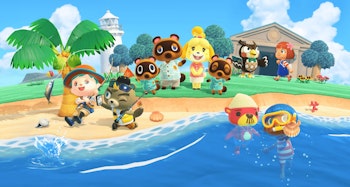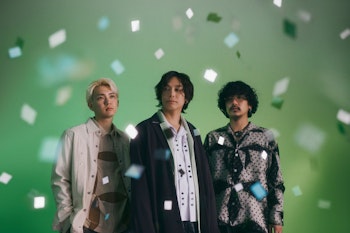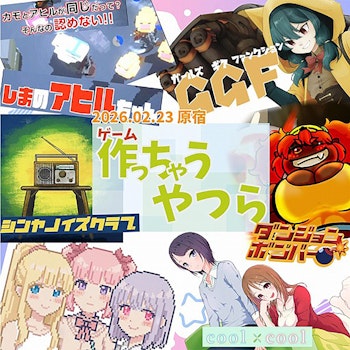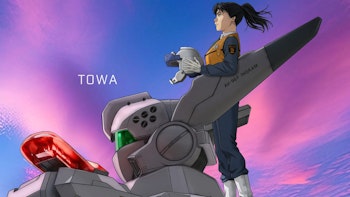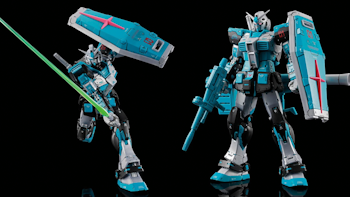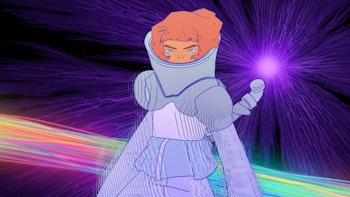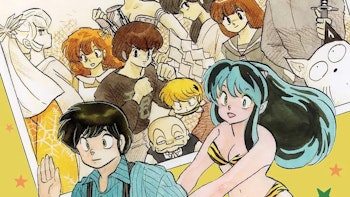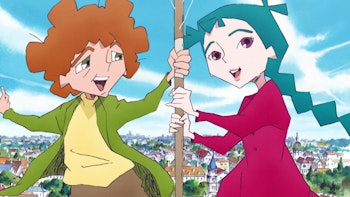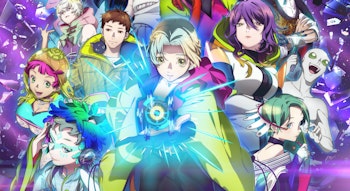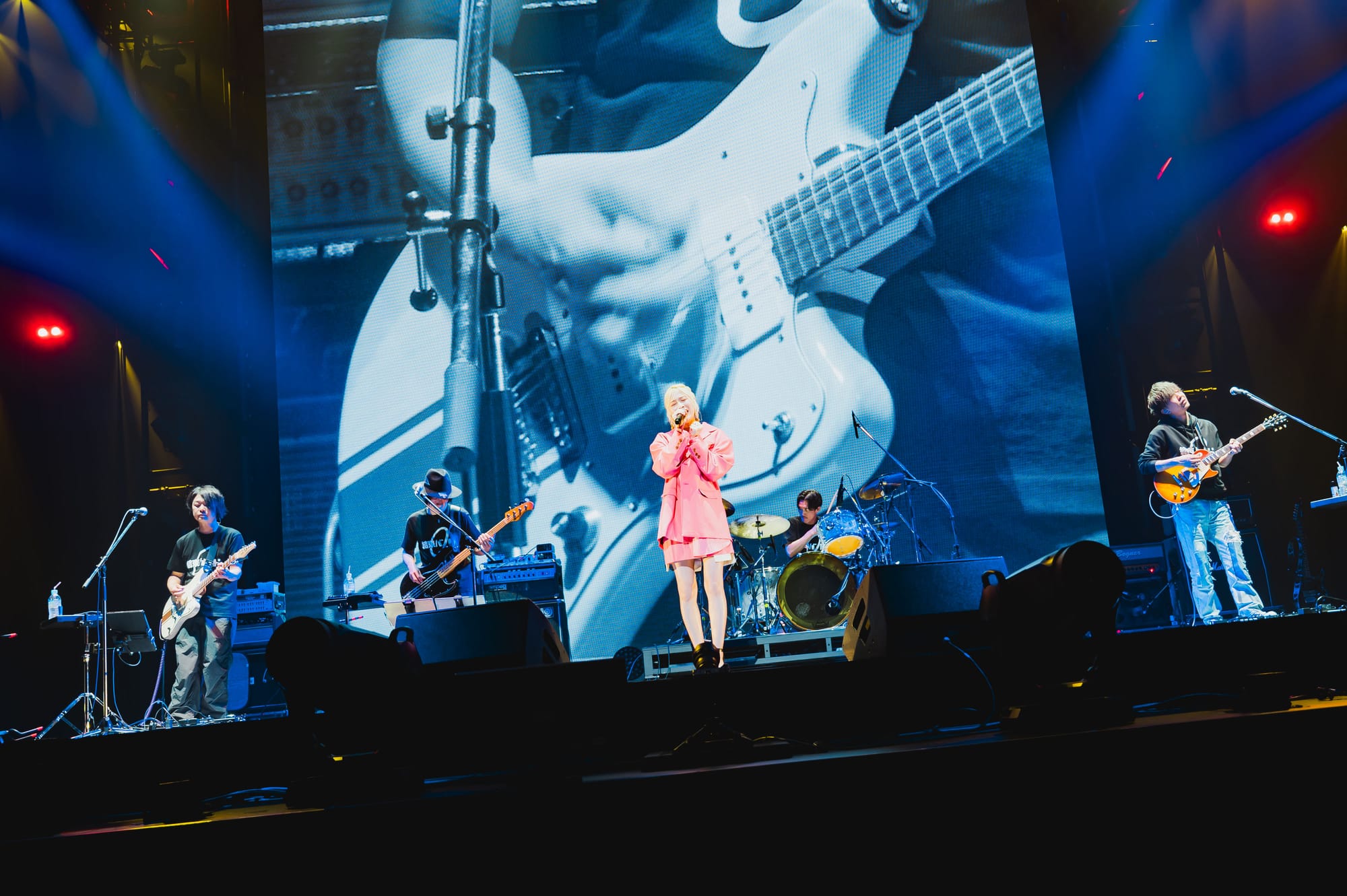
In September, Togenashi Togeari will perform at the venue considered by aspiring artists as the ultimate proof of success, the dream venue: Nippon Budokan. What’s even more impressive is that the group only made their debut one year ago, and though the voice actors set to take that stage are real, the characters they play are from a TV anime.
The last 15 years of anime has increasingly been defined by the growing, deft interweaving of the music and anime industries, first in the world of idols with the explosion of franchise like Love Live, and then across ever-broader genres in recent years. Separate to the also-notable trend of anonymous and virtual artists like Ado and KAF and the growing space of virtual artists, fictional musicians have made ever-greater impacts on the real-world music industry, these voice actors-turned-singers, dancers and musicians commanding legions of fans from live houses to music halls, arenas, nationwide tours beyond Tokyo, Budokan and sometimes even larger venues. And it shows no sign of slowing down.
For all that classic anime have their share of iconic musical themes, they were never created to be the next major chart-topping hit. With a younger demographic being the target, anime songs were if anything more akin to uplifting character themes, seen in everything from Mazinger Z to, of course, Astro Boy. Create a catchy theme, and the kids might buy a toy. In the late-1970s and 1980s as more mature anime were slowly being produced, this attitude changed. Super Dimension Fortress Macross is a particularly notable franchise from this era as it was a mecha series where music was the core of its identity. Here, creativity and music are defined as a key identity of what makes us human.
Music has the power to bring us together. We see the franchise embrace a huge swathe of genres across its existence in recognition of this idea, each adapting to the era of their release. In the movie Do You Remember Love, "Ai Oboeteimasuka" by idol Mari Iijima was an example of an anime song whose resonance could become a success with a broad population, though it was ultimately an exception in being perceived as a pop song beyond its anime connotations. When songs for anime like Urusei Yatsura and Touch entered the mainstream, they were still anime songs, for all the baggage that entails.
Whereas you would witness musicians attempt to define themselves as multimedia personalities and talents, particularly idols who would take starring roles in major movies while appearing in TV dramas, on radio and beyond, few would make the jump into anime. In part because it was viewed as being for a niche audience whose specific otaku interests had little overlap to a general audience.
Anime, for a time, embraced this. Even popular anime hits as late as the 2000s had their own distinct sound siloed from the trends of the broader industry. It didn’t mean an anime song couldn’t top the charts or find eternal love online or in DJ circles, but it was distinct. Even when an anime was about music and the series garnered widespread popularity, these anime musicians weren’t going to release music that wasn’t produced solely for their respective anime or attempt to expand beyond it. K-On! spawned Hokago Tea Time, who became the first fictional anime group to top charts with their album. The anime was big enough to spawn a school revitalization of similar clubs inspiring active musicians even today. But it didn’t lead to a broader career for the voice actors as a rock beyond one-off concerts, albeit at impressively-sized venues like Saitama Super Arena. Nor was that ever the intention.
Then there was Love Live. While not the first anime-cum-gaming multimedia hybrid to tap into the overlap between the hyper-motivated fandom of the idol industry with anime fans (and to a lesser extent, fans of seiyuu as talents in their own right), it was the most successful. Taking an anime-first approach to defining the school idol club as core to these characters and their music, this was a franchise developed from the outset with major idol producers in the industry with the goal of creating 2D idols that not only made for compelling television, but become concert-selling stars for years to come.
μ's was the first group spawned from the original series, and for a brief moment were one of the biggest idols in Japan. Their final concert was held at Tokyo Dome. It opened the door to similar artists on the male and female idol side across a variety of genres to blossom, from Strawberry Prince to Bang Dream.
Yet there’s a reason why this shift has been more drastic in recent years. After RADWIMPS contributed to the music of Your Name and helped turn Makoto Shinkai into the hottest director in the industry, and Demon Slayer: Mugen Train became the biggest movie of all time in Japan, these mega hits were the catalysts that made anime cool for wider audiences than ever before. Coupled with a boom internationally via streaming, and more eyes spending more money were on the medium than ever before. Alongside this, those raised on the online world of Vocaloid of Nico Nico Douga were coming-of-age and embracing new ways of sharing music and their own creativity through social media and video sharing platforms. Indie animators grew online platforms by creating animated music videos for Vocaloid and major up-and-coming artists, bringing authenticity through their hand-drawn scratching that saw animators and artists collaborating as one.
Most importantly, perceptions of the medium inside the industry shifted. Rather than a step on the road to popularity you’d eventually quit doing once you were big enough to target a general audiences, animated videos and creating music for TV anime was cool, as well as a lucrative chance to go viral and share your work with large audiences at home and abroad. As companies like Sony became more invested in anime, buying Funimation and Crunchyroll and having already had investments in Aniplex and other studios, many inside the company saw opportunity and synergy to bringing in their artists to sing theme songs for upcoming shows, leading to the many hits of YOASOBI.
Which brings us back to Togenashi Togeari. Far from the only recent musical act spawned from a popular anime as the success of Kessoku Band following the premiere of Bocchi the Rock! proves, these acts followed the path to musical success defined by the likes of Love Live, without being beholden to an idol genre in decline from its 2010s heyday (although groups like Fruits Zipper have begun to revive the idol genre’s fortunes). This new wave of musicians found success both through musical talent and catchy music from veteran producers, but the relatable stories of their source material.
On the side of producers and management, they find success both through a hit anime they can merchandise, and the boom of anime Blu-Ray and CD sales tied to ticket pre orders for their in-demand new stars performing live in-concert. Yet beyond this, the appeal of Togenashi Togeari and Kessoku Band as musicians beyond the screen isn’t merely a captive audience from a popular anime seeking a chance to see songs from the shows they love performed live.
Between characters people love and can relate to and music with the power to connect us on a deeper level, it transforms the bond between fan and artist in a way that other musical groups can’t replicate. It’s a musical revolution tuned to the anime boom of today. When a story resonates because the struggles of its characters connect to your own life, that means something. Combined with music’s power to resonate with our humanity on a deeper level, and the likely shared interests and experiences of fans brought in through these relatable ideas, their success forms a community that transcends mere anisong.
Stories have the power to inspire, and music can connect to the deepest recesses of our minds and alter our views of the world and relationships around us. Bring them together, and you create something truly special.
